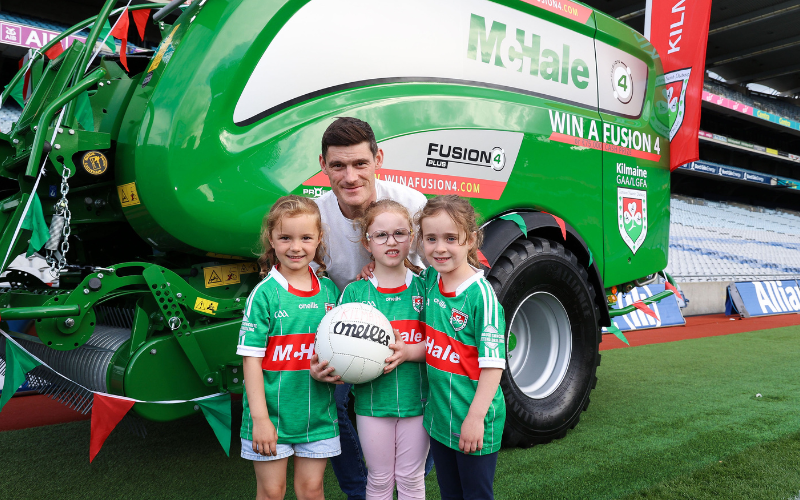Watching Noctu was a little bit like watching bits of my life performed on stage. Talking to the show's creator-choreographer Breandan de Gallai after Saturday's evening show, I learned that was exactly the desired reaction.
Noctu, which just wrapped up a short run at Manhattan's Irish Repertory Theatre on Sunday, is what de Gallai called the autobiography of an Irish dancer. Through the eyes of three disenfranchised characters, de Gallai unveils the conflicts within every dancer, including feelings of inadequacy and simply being misunderstood, in stark contrast to joy and camaraderie.
While it surprised me that de Gallai, a legend in the Irish dance world, might've ever felt inadequate in his dancing ability, he explained that these emotions are in every dancer -- from beginners to world-class champions. De Gallai, who himself ranks among the world's most esteemed step dancers, said assuredly, "Everybody has those feelings -- the times when no matter what you do, you just feel awful."
The theme of inadequacy was personified by the lead female character, played by Australian dancer Peta Anderson. In this role, Anderson portrayed a passionate dancer whose natural skills didn't quite match up with her bursting enthusiasm for dance. In her solo, a dream sequence, she bounds gracefully across the stage. But when the dream is over, Anderson's character clumsily bops along to a few bars of a slip jig tune.
Principal dancer Callum Spencer offered an inside look at the struggles of being a male Irish dancer, who is constantly ridiculed and proactively presenting himself as macho. Still, Spencer's character is berated with homophobic slurs by his peers. The stereotype that Irish dancing is a girly activity is matched by an ironically masculine traditional hornpipe performed by Spencer, a clear athlete with a strikingly robust build.
In a related -- and "intentional" -- move, de Gallai choreographed soft shoe dances for the male dancers. Unlike Riverdance, Lord of the Dance and other popular Irish dance stage shows, de Gallai deliberately choreographed reels to be performed by the men. He said that he's sometimes stuck explaining to people that all Irish dancers -- male and female -- begin with light dances. Too often, audiences unfamiliar with traditional Irish dance mistakenly associated hard shoes with masculinity and soft soles with femininity.
"There's a lot of expression in what we do in soft shoes," he said.
There was no lack of expression, power and strength in dancer Nick O'Connell's reel, performed barefoot to a modern rendition of "I Will Survive" by Cake. This particular dance was both unexpected and exhilarating. The combination of gymnastic choreography and O'Connell's gallant stage presence was anything but delicate.
Noctu was refreshing. It was honest. De Gallai described it as an "exploration of the possibilities of Irish dance," and it was exactly that. From the contemporary soundtrack to the interculturally influenced choreography, Noctu strips Irish dance of its stuffy reputation. Yet, somehow, de Gallai's creation was in ways more traditional and representative of Irish dance than its famous step dance show predecessors.
For more Irish dancing news from North America's favorite magazine delivered to your mailbox, subscribe today!
Noctu, which just wrapped up a short run at Manhattan's Irish Repertory Theatre on Sunday, is what de Gallai called the autobiography of an Irish dancer. Through the eyes of three disenfranchised characters, de Gallai unveils the conflicts within every dancer, including feelings of inadequacy and simply being misunderstood, in stark contrast to joy and camaraderie.
While it surprised me that de Gallai, a legend in the Irish dance world, might've ever felt inadequate in his dancing ability, he explained that these emotions are in every dancer -- from beginners to world-class champions. De Gallai, who himself ranks among the world's most esteemed step dancers, said assuredly, "Everybody has those feelings -- the times when no matter what you do, you just feel awful."
The theme of inadequacy was personified by the lead female character, played by Australian dancer Peta Anderson. In this role, Anderson portrayed a passionate dancer whose natural skills didn't quite match up with her bursting enthusiasm for dance. In her solo, a dream sequence, she bounds gracefully across the stage. But when the dream is over, Anderson's character clumsily bops along to a few bars of a slip jig tune.
Principal dancer Callum Spencer offered an inside look at the struggles of being a male Irish dancer, who is constantly ridiculed and proactively presenting himself as macho. Still, Spencer's character is berated with homophobic slurs by his peers. The stereotype that Irish dancing is a girly activity is matched by an ironically masculine traditional hornpipe performed by Spencer, a clear athlete with a strikingly robust build.
In a related -- and "intentional" -- move, de Gallai choreographed soft shoe dances for the male dancers. Unlike Riverdance, Lord of the Dance and other popular Irish dance stage shows, de Gallai deliberately choreographed reels to be performed by the men. He said that he's sometimes stuck explaining to people that all Irish dancers -- male and female -- begin with light dances. Too often, audiences unfamiliar with traditional Irish dance mistakenly associated hard shoes with masculinity and soft soles with femininity.
"There's a lot of expression in what we do in soft shoes," he said.
There was no lack of expression, power and strength in dancer Nick O'Connell's reel, performed barefoot to a modern rendition of "I Will Survive" by Cake. This particular dance was both unexpected and exhilarating. The combination of gymnastic choreography and O'Connell's gallant stage presence was anything but delicate.
Noctu was refreshing. It was honest. De Gallai described it as an "exploration of the possibilities of Irish dance," and it was exactly that. From the contemporary soundtrack to the interculturally influenced choreography, Noctu strips Irish dance of its stuffy reputation. Yet, somehow, de Gallai's creation was in ways more traditional and representative of Irish dance than its famous step dance show predecessors.
For more Irish dancing news from North America's favorite magazine delivered to your mailbox, subscribe today!




Comments